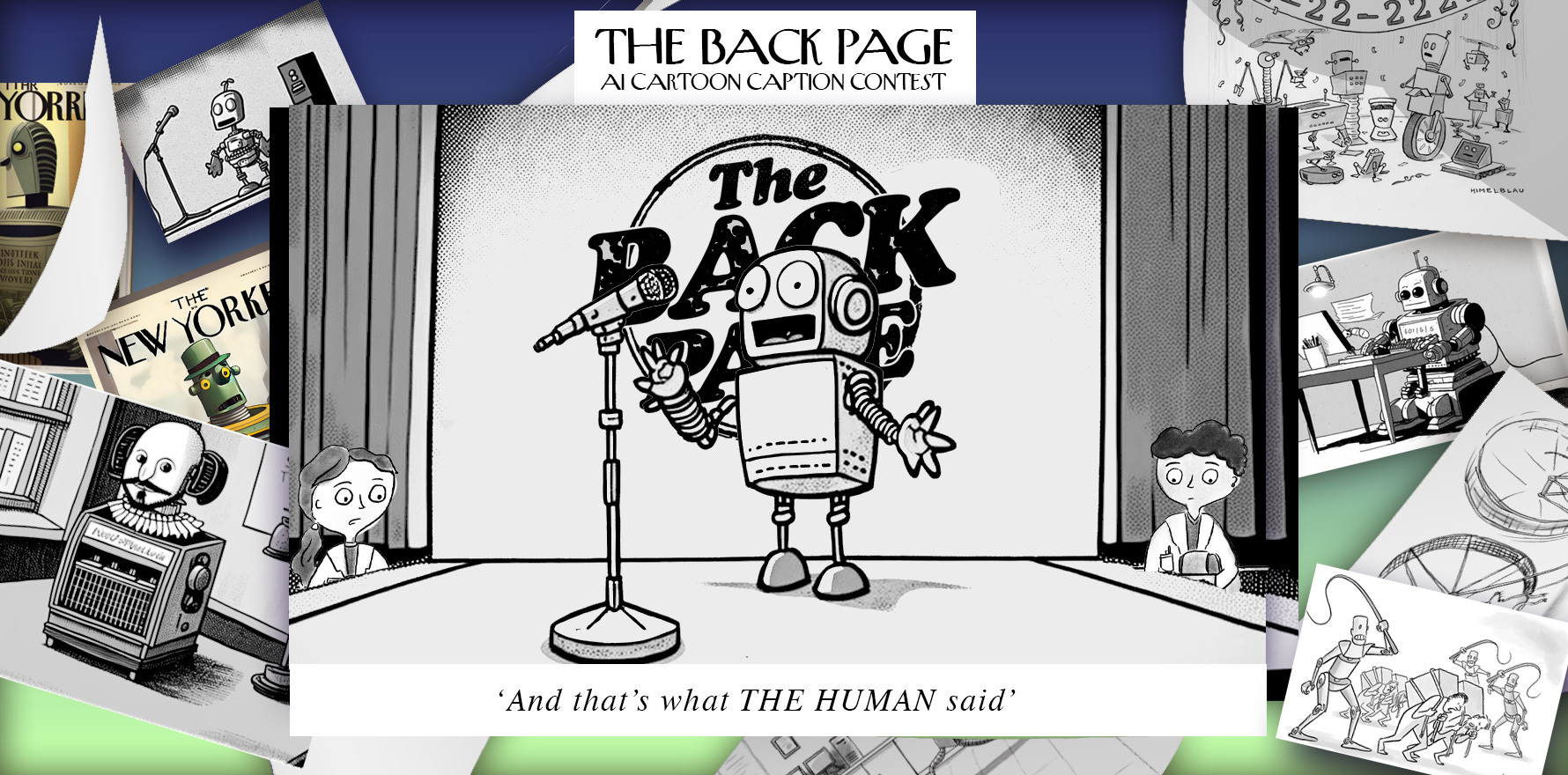And don’t ask a robot what the deal with airplane food is.
Your Back Page correspondent grew up as the eldest of four children, who came in two sets of twins. We had a perfectly happy childhood – never arguing and always getting along.
If you believed that last sentence, you’re clearly an only child.
We were competitive about everything: sport, academic achievements, who got to sit in the front seat … And especially Mario Kart, which we spent many hours playing on our ice-blue Nintendo 64.
There are still things we compete over as adults, but this is mostly limited to who gets the biggest Christmas present each year (for the record, last year it was my twin sister, who got a new set of saucepans).
Today, we humans face even fiercer competition than we did from our siblings or that one super annoying kid in our class at school, but it’s not from a person. Rather, it’s AI.
The Back Page has previously discussed many instances where AI outperforms humans: taking mock ob/gyn exams, being empathetic, reading ECGs and identifying which songs will be a “hit” or “flop”.
But it seems US researchers have finally found something where humans are still superior to AI: being funny.
As part of the study, which won a best paper award at the 61st annual meeting of the Association for Computational Linguistics last month in Toronto, researchers challenged AI models (like ChatGPT) and humans to three tasks based on the New Yorker’s cartoon caption contest: matching a caption to the cartoon, picking the winning caption, and explaining why the winning caption is funny.

The study was built around a corpus of more than 700 caption contests selected over a 14-year period. Each contest included a captionless cartoon, entries submitted by readers and three finalists selected by the editors.
The first task tested whether AI could pick which one of five captions was appropriate for a specific cartoon. The correct answer was always one of the three finalists selected by the editors, while the incorrect answers were randomly selected finalists from other images (meaning they were probably funny but didn’t match the context of the cartoon in question).
The final task tested whether AI could write a short explanation of why the captions were funny and appropriate for the selected cartoon, like when you have to explain a joke to a friend who doesn’t get it.
Researchers tested two kinds of AI in each of the three tasks. The first was the “from pixels” setting, where AI was only given the captionless cartoon, while in the second “from description” setting the AI only had access to a text-based description of the cartoon. This gave AI models that don’t have a built-in image-processing component the opportunity to flex its sense of humour (or lack thereof).
Human participants performed much better in the matching task, selecting the correct answer 96% of the time compared to AI, where the best performing AI model only picked the correct answer 62% of the time.
In another win for the humans, the human-written explanation of why the caption was funny was preferred over the AI-generated explanations on a two-to-one basis. The researchers suggest the AI incorrectly interpreted some of the images, but The Back Page isn’t convinced that the AI didn’t look down their virtual noses and take a real condescending tone with the judging panel.
These findings are expected to be welcomed by the Writers Guild of America, who are currently striking over residuals from streaming media and the use of AI in producing scripts. The Guild wants AI to be used only as a tool to help with script ideas, rather than replacing them outright.
These findings, which don’t paint the AI’s comedy chops in a particularly flattering light, seem to support that view.
“The partial capacity of today’s AI is still substantial and may be sufficient for models to serve as creative collaborators, e.g., as brainstorming assistants for humourists/cartoonists … [but] we cannot claim to know whether the human-machine ‘humour understanding gap’ will be closed sooner or later. Or never,” researchers concluded.
Send your best jokes to penny@medicalrepublic.com.au to see if you’re funnier than AI.


